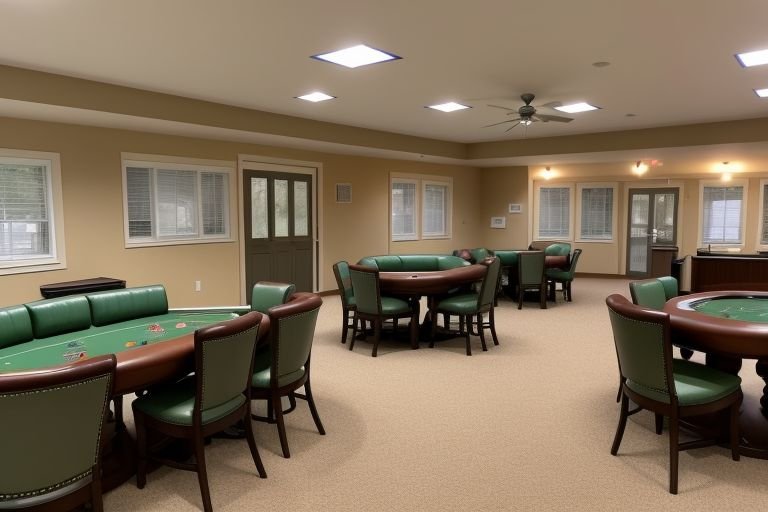The San Francisco Police Department, SFPD patrol officers came across a large-scale prohibited gaming while responding to reports of shots fired in the city. This accidental finding has revealed that there is more to underground gambling operations in San Francisco and how hard it is to stop this operation.
The shooting occurred when SFPD officers responded to a number of complaints of the discharge of firearms in a residential neighborhood. When on arrival, there was a report of malicious activities in another building near the scene where the officer was stationed. Police strategy to apprehend a man with a firearm escalated into capturing a key suspect linked with illegal gambling activities.
When the officers arrived to the location there was a lot of pedestrian traffic for that time and in that type of neighbourhood. Worrying that these could be gambling machines and people practising their gaming activities, they peeked through windows. Realising that the intensity of the activity going on was indicative of an illegitimate business, the officers closed the compound and requested for reinforcements.
When more police cars came, the SFPD proceeded to perform a rather unplanned bust on the business. Inside, they discovered an actual active a gambling den where opposing factions gambled using machines, cards and even had a mock bar. The setting up of the devices was elaborate, this was not a temporary business, probably operated by a flop house fixing bets for weeks or months, but a rather more professional business identified as gambling.
Some people were arrested at the scene: the regulars and the alleged owners of the unlawful gambling establishment. Besides the gambling equipment, officers recovered large quantities of money, records of betting, and, rather expectedly, several big guns. The issue of allowing weapons in the compound arose due to worrisome cases of violence connected to the underground business.
This recent find has, therefore, forced the SFPD to reconsider its approaches for detaining and closing the prohibited gambling houses within the city. The seeming ability of this den to conduct operations for years in a residential area remains unknown until the report of gunfire suggests that there are others all across San Francisco.
The event has also brought back criticism over the distribution of resources to police and various approaches being used to tackle illicit gambling. Certain anti-gambling activists are urging local authorities to step up patrols in the communities and conduct more patrols of acting gambling establishments. Some people suggest that a wider view should be adopted, this one focusing not on the physical properties but on the reasons that make people engage themselves in running or frequenting such facilities.
As a result of this discovery, the SFPD has said it will establish a special task force to target and eliminate gambling operations. This specialised unit will be reporting to the other departments in gathering of intelligence, surveillance and possibly storming likely areas of gambling.
It therefore means that the effects of conducting business in the criminal act of illegal gambling does not stop at the criminal activities. Often these underground casinos are also used to finance M‑laboratories; engage in drug trafficking and other forms of criminal activities. The police believe that through focusing the operations on such places the authorities will be able to neutralise bosses of big criminal groups located in the city.
The reaction of the community to the discovery has remained mixed. While many of the respondents are happy that a dangerous operation that could have led to numerous casualties has been closed, many others are concerned over the possibility of having activities that could be detrimental to society going unnoticed in their neighborhoods. This event has led to people demanding more cops to be stationed in their neighborhoods and police officers to interact more often with the common()people.
Local politicians have also chimed, with some demanding an increased pitch for any person found guilty of engaging in operating or patronising an unlawful gambling platform. Some other people believe that the legalization of one or many forms of gambling would serve to put businesses out of business since gambling would be legal, and people would engage in legal gambling rather than engaging in illegal gambling.
Going forward, as the SFPP investigates this particular operation more deeply, the SFPD is encouraging the public to remain alert and alert of any signs of possible illegitimate betting houses in their community. The department stresses that community participation effectively reports and closes down these ventures.
Therefore, finding this gambling den by accident is a good reminder that crime can be secretly conducted anywhere in cities. It emphasizes the importance of persistently maintaining attention and readjusting police responsiveness to expect new forms of crime industries.
Since the issue of illegal gambling remains relevant in San Francisco, this event may contribute to the general public discussions concerning crime in some urban areas, the safety of communities, and relevant strategies in the matters of policing a diverse metropolis. In the following months, there most probably will also be active measures against similar businesses as the SFPD and the city officials continue the struggle against the threats to public safety and legal order.


